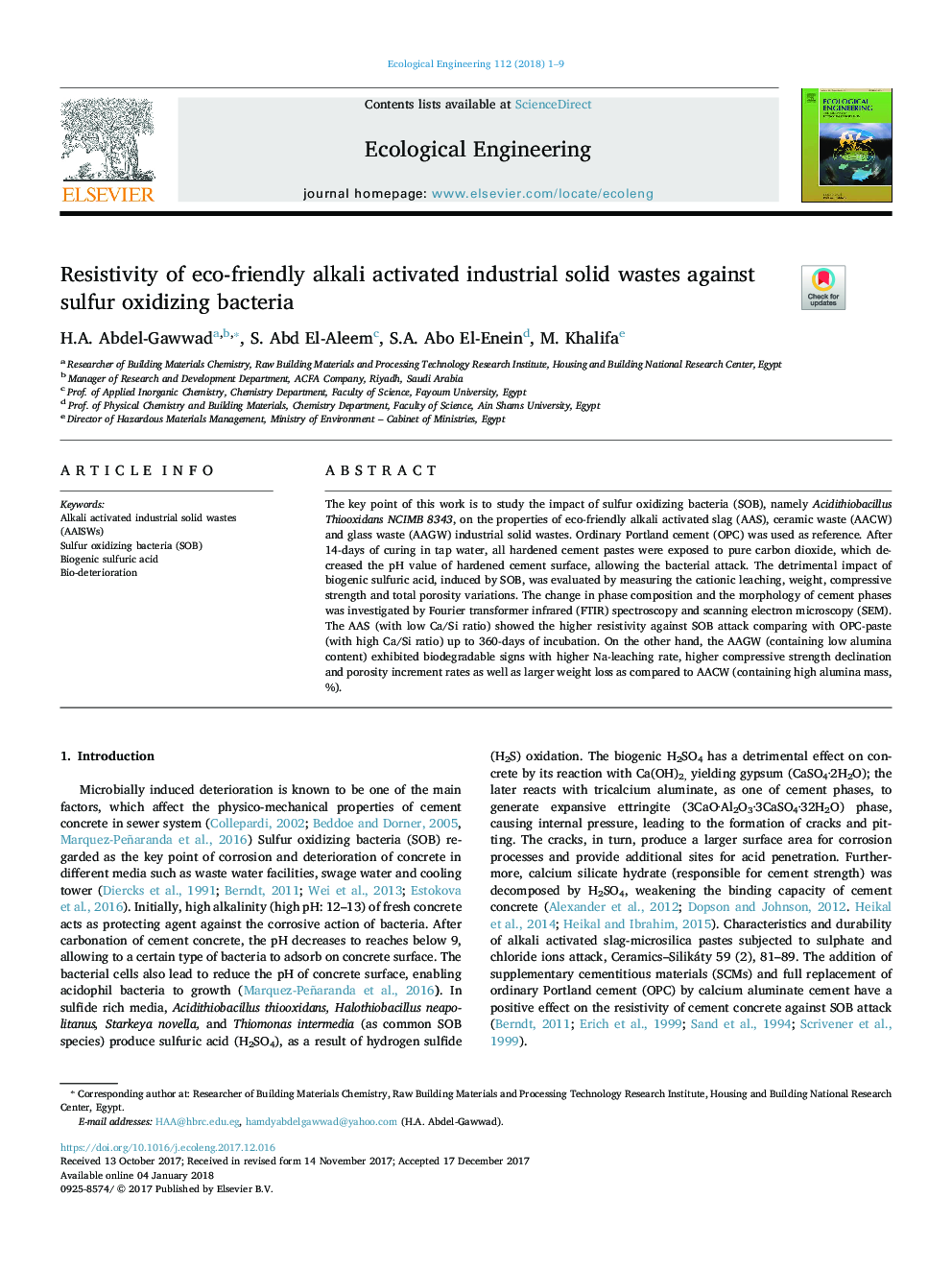| Article ID | Journal | Published Year | Pages | File Type |
|---|---|---|---|---|
| 8848047 | Ecological Engineering | 2018 | 9 Pages |
Abstract
The key point of this work is to study the impact of sulfur oxidizing bacteria (SOB), namely Acidithiobacillus Thiooxidans NCIMB 8343, on the properties of eco-friendly alkali activated slag (AAS), ceramic waste (AACW) and glass waste (AAGW) industrial solid wastes. Ordinary Portland cement (OPC) was used as reference. After 14-days of curing in tap water, all hardened cement pastes were exposed to pure carbon dioxide, which decreased the pH value of hardened cement surface, allowing the bacterial attack. The detrimental impact of biogenic sulfuric acid, induced by SOB, was evaluated by measuring the cationic leaching, weight, compressive strength and total porosity variations. The change in phase composition and the morphology of cement phases was investigated by Fourier transformer infrared (FTIR) spectroscopy and scanning electron microscopy (SEM). The AAS (with low Ca/Si ratio) showed the higher resistivity against SOB attack comparing with OPC-paste (with high Ca/Si ratio) up to 360-days of incubation. On the other hand, the AAGW (containing low alumina content) exhibited biodegradable signs with higher Na-leaching rate, higher compressive strength declination and porosity increment rates as well as larger weight loss as compared to AACW (containing high alumina mass, %).
Keywords
Related Topics
Life Sciences
Agricultural and Biological Sciences
Ecology, Evolution, Behavior and Systematics
Authors
H.A. Abdel-Gawwad, S. Abd El-Aleem, S.A. Abo El-Enein, M. Khalifa,
